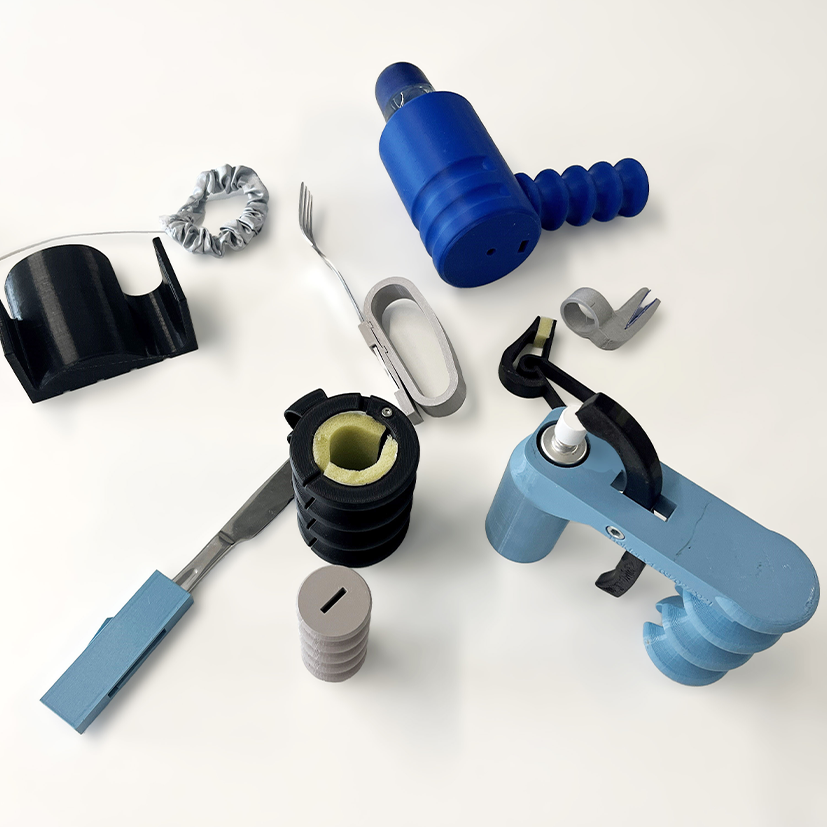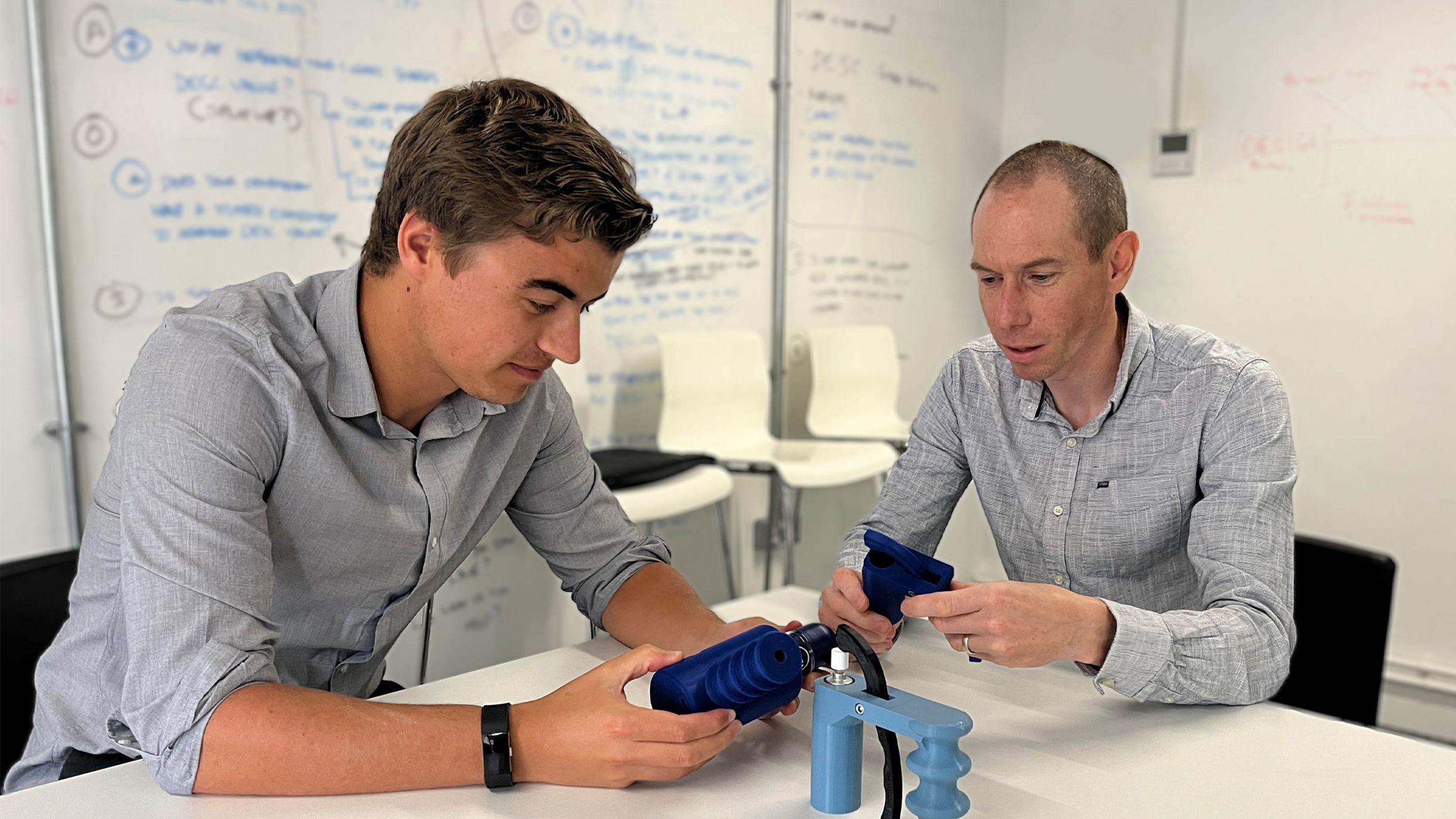New research paper highlights barriers and solutions for scaling up custom assistive technology
The latest research paper published by our research team and Swansea Bay University Health Board researchers sheds light on the challenges and potential solutions for scaling up the use of custom assistive technology (AT) within healthcare services.
In an era where chronic health conditions contribute significantly to global health burdens, AT is crucial to supporting independence and wellbeing. However, up to 70% of AT is reported to be prematurely abandoned since it does not meet user needs. With an estimated 2.5 billion people relying on AT products globally, an ageing global population, a rise in noncommunicable disease and constraints on healthcare spending, this waste cannot be afforded.
Designing with the end use to create solutions that are tailored to their needs could reduce this waste. Computer-aided design and 3D printing are powerful tools that can enable this, offering a paradigm shift from traditional, wasteful "one-size-fits-all" AT. This has garnered significant interest from AT users.
Integrating a co-design within a healthcare system does, however, face challenges. To mitigate these, researchers conducted interactive workshops with healthcare professionals from two UK health boards. These workshops sought to identify and analyse the barriers in the AT design, manufacturing, and provision processes.
Barriers and Recommendations
The research identified several barriers to the widespread adoption of custom AT, including issues related to both off-the-shelf and co-designed solutions. To overcome these challenges, the paper recommends:
- Improving Communication: Enhancing dialogue between stakeholders to ensure a cohesive approach.
- Accessible Information: Making information about AT easily accessible to all parties involved.
- Feedback Utilisation: Ensuring that feedback from end-users and healthcare professionals is systematically gathered and applied.
- Empowering Non-Experts: Developing tools that allow non-expert designers to safely and effectively modify custom AT designs.

Future Implications
This research forms part of a long-term ambition to efficiently scale up a service for the co-design of custom AT across various specialties and healthcare services. By addressing the identified barriers and implementing the recommended solutions, the study aims to pave the way for more widespread and effective use of custom AT, ultimately improving the quality of life for end-users.
For more information, the full research paper is available in the latest issue of the Journal of Disability and Rehabilitation: Assistive Technology.
Read the full paper: Discovering the barriers to scaling a co-design approach for the provision of custom assistive technology within healthcare services
Learn more about our pioneering design research projects here

